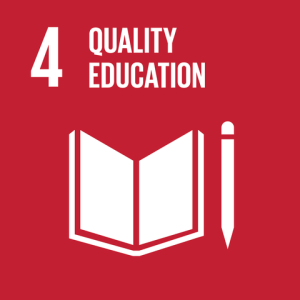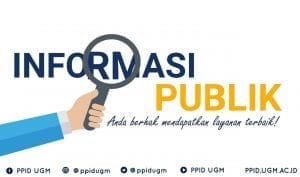Sharing Session: Eksistensi Kebudayaan Jawa di Mancanegara
College StudentStudentStudent's ActivitySDGS Monday, 1 April 2024
On Thursday, March 28, 2024, the Javanese Language, Literature, and Culture Study Program, Universitas Gadjah Mada (UGM), together with the Javanese Language, Literature, and Culture Student Association (HMJ Kamastawa), held a sharing session entitled 'The Existence of Javanese Culture in Foreign Countries'. The event was held offline at the Soegondo Auditorium, 7th floor, at 15.00 WIB until completion.
This sharing session featured two main speakers, Rudy Wiratama, S.I.P., M.A., and R. Bima Slamet Raharja, S.S., M.A., both lecturers of the Javanese Language, Literature, and Culture Study Program with a field of literary studies. Alma Syahwalani and Muhammad Bagus Ulin Nuha also participated as speakers and moderators. The participants consisted of students of the Javanese Language, Literature, and Culture Study Program batches 2021, 2022, and 2023, as well as other participants who were interested in the existence of Javanese culture in foreign countries.
In the presentation session, R. Bima Slamet Raharja, S.S., M.A., and Rudy Wiratama, S.I.P., M.A., shared their experiences when working on a project organized by the British Museum. The project is a study that departs from a question: is it true that Raffles' belongings that are now in the British Museum were looted?
"At the British Museum, we found a lot of manuscripts and puppet collections, such as wayang kulit, wayang topeng, wayang krucil, and wayang klithik, to a puppet whose existence has been lost in Java," explained R. Bima Slamet Raharja, S.S., M.A., in his presentation. "This can be an opportunity for Javanese literature students to study and continue their education abroad," he added.
In line with R. Bima Slamet Raharja, S.S., M.A., Rudy Wiratama, S.I.P., M.A., reviewed research opportunities for students through the perspective of post-colonialism. "The current cultural perspective adopts a post-colonialism perspective. This means that the British Museum gives access to the owners of culture, namely us, to research and study according to their own cultural knowledge and taste." In addition, he also highlighted the lack of Javanese manuscript experts in the UK. "In the UK, there are various manuscripts and cultures typical of the archipelago, but the scholars are very few and have not experienced significant regeneration," he explained.
After the presentation session ended, the announcer opened a discussion session and gave participants the opportunity to ask questions of the two speakers. The participants responded enthusiastically. This was evident from the variety of questions asked of the speakers. The last series of events was the closing, with a group photo session to capture the moment.
The Sharing Session event entitled 'The Existence of Javanese Culture in Foreign Countries' is expected to motivate and arouse the enthusiasm of students of the Javanese Language, Literature, and Culture Study Program. "This is to motivate all Javanese Literature friends that departing from pleasure or hobbies, if done seriously, can lead to dreams or ideals, especially about Java, and that opportunities are wide open for all students," said R. Bima Slamet Raharja, S.S., M.A.
Research and study of the traditions and culture of the archipelago need to be carried out continuously to maintain its sustainability because it is the identity and heritage of the Indonesian nation. Synergy from various parties is needed in disseminating this knowledge to academics and the community so that knowledge and culture are not lost and can continue to be developed in accordance with the times. This is in line with the goals of sustainable development, especially in organizing superior-quality education and establishing partnerships to achieve certain goals.











